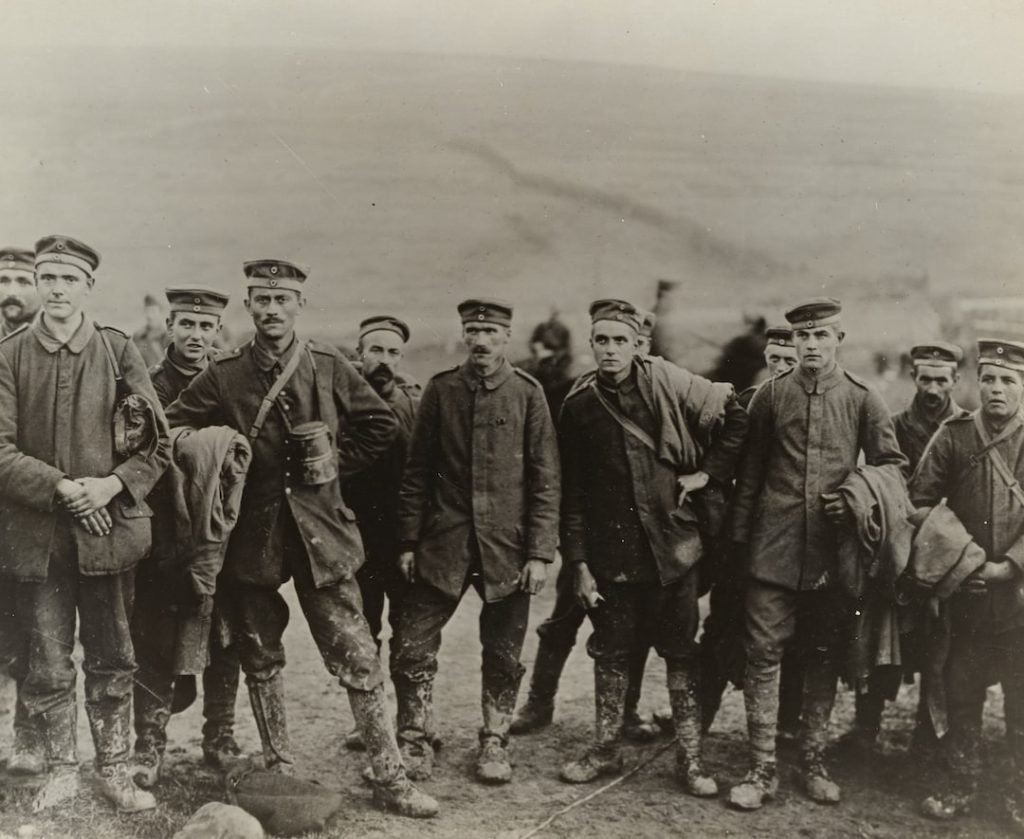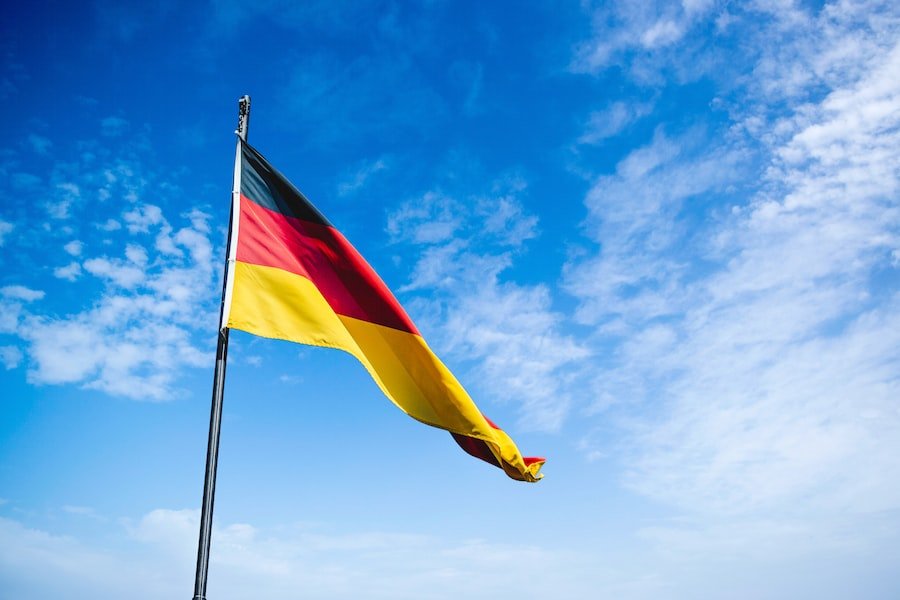

Essential German Phrases for Tourists
When traveling to a foreign country, it is always helpful to have some basic knowledge of the local language. This is especially true when visiting Germany, as knowing a few key German phrases can greatly enhance your travel experience. Whether you are ordering food at a restaurant, asking for directions, or simply greeting locals, being able to communicate in German will make your trip more enjoyable and rewarding.
Table of Contents
ToggleGreetings and Introductions
One of the first things you will need to know when visiting Germany is how to greet people and introduce yourself. Common German greetings include “Guten Tag” (Good day), “Hallo” (Hello), and “Wie geht es Ihnen?” (How are you?). It is also important to know how to respond to these greetings, such as “Gut, danke” (Good, thank you) or “Es geht mir gut” (I am doing well).
When introducing yourself, you can say “Ich heiße…” (My name is…) followed by your name. To ask someone’s name, you can say “Wie heißen Sie?” (What is your name?). It is polite to use the formal “Sie” when addressing someone you do not know well or in a professional setting. However, if you are speaking with friends or peers, you can use the informal “du” instead.
Asking for Directions
Getting around in a new city can be challenging, but with some basic German phrases, you can easily ask for directions. Essential phrases for asking for directions include “Entschuldigung, wo ist…?” (Excuse me, where is…?) and “Können Sie mir helfen?” (Can you help me?). It is also helpful to know some vocabulary related to directions, such as “links” (left), “rechts” (right), “geradeaus” (straight ahead), and “um die Ecke” (around the corner).
When someone gives you directions, it is important to understand the vocabulary they use. For example, “nach links abbiegen” means to turn left, while “gehen Sie geradeaus” means to go straight ahead. It can also be helpful to ask for clarification if you do not understand something. Phrases like “Können Sie das bitte wiederholen?” (Can you please repeat that?) and “Ich verstehe nicht” (I don’t understand) can come in handy.
Ordering Food and Drinks
Germany is known for its delicious cuisine, and being able to order food and drinks in German will enhance your dining experience. When entering a restaurant or café, you can say “Guten Tag” to greet the staff. To order food, you can say “Ich hätte gerne…” (I would like…) followed by the name of the dish. For example, “Ich hätte gerne eine Currywurst” (I would like a currywurst).
It is also important to know some vocabulary related to food and drinks. For example, “Wasser” means water, “Bier” means beer, and “Kaffee” means coffee. Additionally, knowing how to ask for the bill is essential. You can say “Die Rechnung, bitte” (The bill, please) when you are ready to pay.
Shopping Phrases
If you enjoy shopping, knowing some basic German phrases will be very useful during your trip. When entering a store or market, you can say “Guten Tag” to greet the staff. To ask for help or find a specific item, you can say “Entschuldigung, können Sie mir helfen?” (Excuse me, can you help me?) or “Wo finde ich…?” (Where can I find…?).
It is also helpful to know some vocabulary related to shopping. For example, “Kleidung” means clothing, “Schuhe” means shoes, and “Größe” means size. When trying on clothes, you can ask for a different size by saying “Haben Sie das in einer anderen Größe?” (Do you have this in a different size?). Additionally, knowing how to ask for the price is important. You can say “Wie viel kostet das?” (How much does it cost?).
Transportation Vocabulary

When traveling in Germany, it is important to know some vocabulary related to transportation. This will help you navigate the country and get to your desired destinations. Common modes of transportation in Germany include “der Zug” (train), “der Bus” (bus), and “die U-Bahn” (subway).
To buy tickets, you can say “Ein Ticket nach…” (One ticket to…) followed by your destination. It is also helpful to know phrases for asking for information, such as “Wo ist der Bahnhof?” (Where is the train station?) and “Wann fährt der nächste Bus?” (When does the next bus leave?).
Emergency Phrases
While no one wants to experience an emergency while traveling, it is important to be prepared and know some essential phrases in case of an emergency. If you need to call for help, you can say “Hilfe!” (Help!) or “Rufen Sie die Polizei!” (Call the police!). If you need medical attention, you can say “Ich brauche einen Arzt” (I need a doctor) or “Ich habe Schmerzen” (I am in pain).
It is also helpful to know some vocabulary related to emergencies. For example, “Unfall” means accident, “Verletzung” means injury, and “Krankenhaus” means hospital. Additionally, being able to describe your symptoms or injuries can be useful. Phrases like “Ich habe Fieber” (I have a fever) or “Ich habe mir den Arm gebrochen” (I have broken my arm) can help medical professionals understand your situation.
Money and Currency
When traveling in Germany, it is important to know some vocabulary related to money and currency. This will help you when exchanging money or paying for goods and services. The currency in Germany is the Euro, and knowing the denominations can be helpful. For example, “ein Euro” means one Euro, “zwei Euro” means two Euros, and so on.
To exchange money, you can say “Ich möchte Geld wechseln” (I would like to exchange money) or “Wo kann ich Geld wechseln?” (Where can I exchange money?). When paying for goods or services, you can say “Kann ich mit Kreditkarte bezahlen?” (Can I pay with a credit card?) or “Können Sie mir bitte eine Quittung geben?” (Can you please give me a receipt?).
Sightseeing Vocabulary
Germany is home to many popular tourist attractions and landmarks, and knowing some vocabulary related to sightseeing will enhance your travel experience. Common tourist attractions include “das Brandenburger Tor” (the Brandenburg Gate), “der Kölner Dom” (Cologne Cathedral), and “das Schloss Neuschwanstein” (Neuschwanstein Castle).
To ask for information about a specific attraction, you can say “Können Sie mir etwas über… erzählen?” (Can you tell me something about…?). To buy tickets, you can say “Ich hätte gerne eine Eintrittskarte” (I would like a ticket). It is also helpful to know some vocabulary related to sightseeing, such as “Museum” (museum), “Aussichtspunkt” (viewpoint), and “Führung” (guided tour).
Making Reservations
If you plan to stay at a hotel, dine at a restaurant, or visit a popular establishment, it is important to know how to make reservations. Phrases for making reservations include “Ich möchte einen Tisch reservieren” (I would like to reserve a table), “Ich würde gerne ein Zimmer buchen” (I would like to book a room), and “Können Sie mir einen Termin geben?” (Can you give me an appointment?).
It is also helpful to know some vocabulary related to accommodations and amenities. For example, “Hotel” means hotel, “Zimmer” means room, and “Frühstück” means breakfast. Additionally, knowing how to ask for specific amenities can be useful. Phrases like “Haben Sie WLAN?” (Do you have Wi-Fi?) or “Gibt es einen Aufzug?” (Is there an elevator?) can help you find the right accommodations for your needs.
Common German Expressions and Slang
In addition to learning formal German phrases, it can be fun and useful to learn some common expressions and slang. These expressions can help you connect with locals and add a touch of authenticity to your conversations. However, it is important to use slang appropriately and understand regional variations.
Some common German expressions include “Alles klar” (All right), “Kein Problem” (No problem), and “Na klar” (Of course). Slang phrases can vary depending on the region, but some examples include “Moin” (Hello), which is commonly used in northern Germany, and “Krass” (Crazy), which is used to express surprise or disbelief.
Learning basic German phrases for travel purposes is essential for a successful trip to Germany. From greetings and introductions to ordering food and drinks, knowing some key phrases will enhance your travel experience and help you navigate the country with ease. By practicing and learning more German vocabulary and grammar, you can continue to improve your language skills and make the most of your time in Germany. So, pack your bags, brush up on your German, and get ready for an unforgettable adventure!
FAQs
Why is it important to learn German phrases as a tourist?
Learning German phrases can help tourists communicate with locals, navigate their way around the country, and have a more enjoyable and immersive travel experience.
What are some basic German phrases that tourists should know?
Some basic German phrases that tourists should know include greetings, asking for directions, ordering food and drinks, and expressing gratitude.
How can tourists practice their German language skills?
Tourists can practice their German language skills by using language learning apps, taking language classes, watching German movies or TV shows, and practicing with locals.
What are some cultural differences that tourists should be aware of when traveling in Germany?
Tourists should be aware of cultural differences such as punctuality, personal space, and table manners when traveling in Germany. Germans value punctuality and may consider being late as disrespectful. They also tend to have a smaller personal space and may stand closer to others during conversations. Table manners are also important, such as keeping your hands on the table and not resting your elbows on it.
Are there any regional differences in the German language?
Yes, there are regional differences in the German language. For example, Bavarian German is spoken in Bavaria and Austria, and has some distinct vocabulary and grammar compared to standard German.
If you want to learn German, you can register for classes here. We look forward to hearing from you and helping you become fluent in German!
If you want to learn Norwegian, you can register for classes here. We look forward to hearing from you and helping you become fluent in Norwegian.





